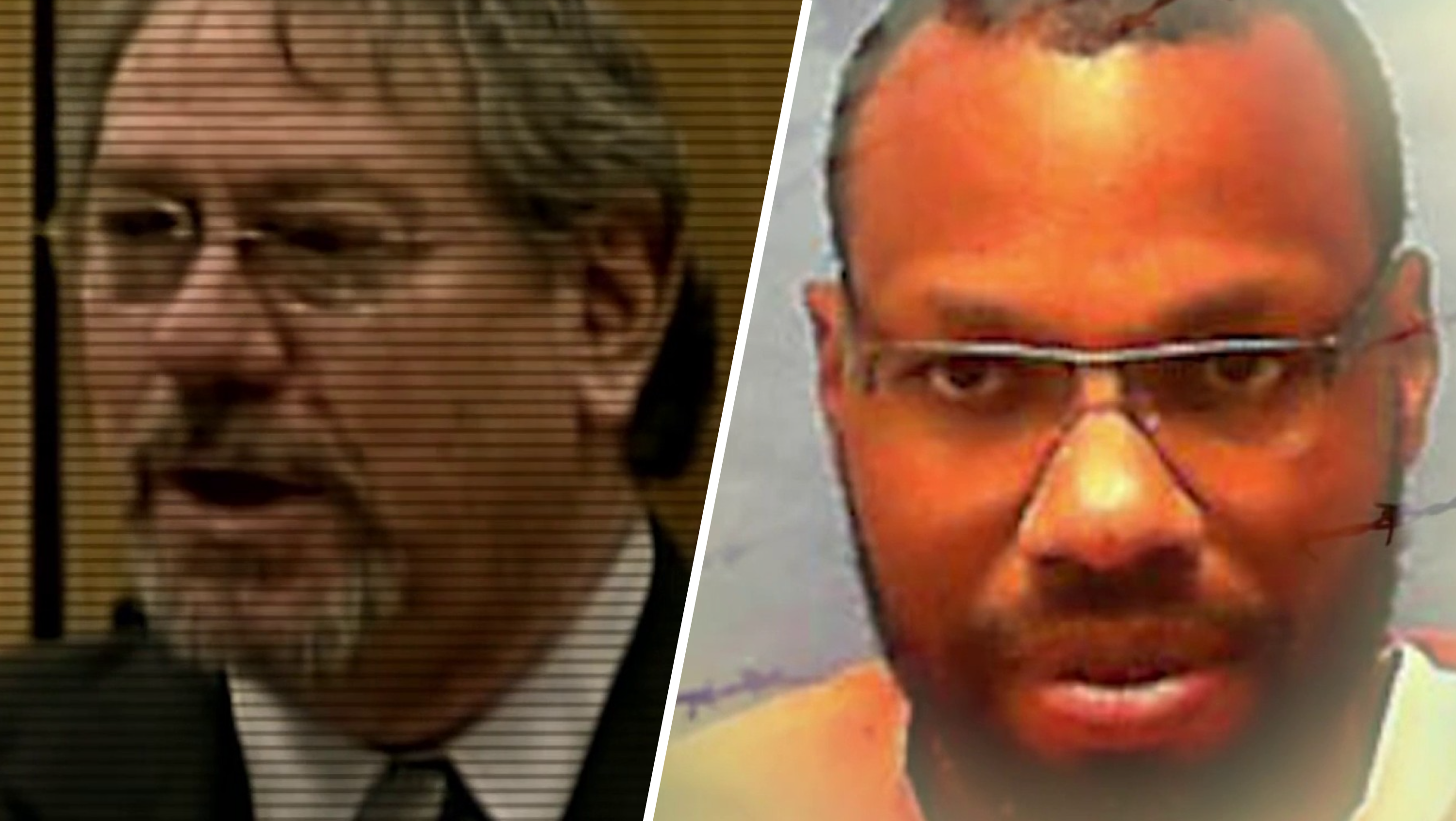The reputed leader of a notorious, violent drug gang that terrorized Liberty City in the 1990s, already taken off death row after a judge found prosecutors committed misconduct, saw his convictions and life sentences reduced Wednesday in a plea deal with the Miami-Dade State Attorney's Office.
Corey Smith, 52, was facing resentencing on two 2005 death sentences, but defense attorneys Craig Whisenhunt and Allison Miller spent years uncovering misconduct by police and prosecutors, persuading a judge last March to remove two assistant state attorneys from the case.
Watch NBC6 free wherever you are
Circuit Judge Andrea Ricker Wolfson had been considering a defense motion to vacate all his convictions, forcing a retrial, a prospect so risky the state attorney determined it was best to drop the first-degree murder convictions and life sentences and have Smith plead guilty to second-degree murder and get 30 years in state prison, having already served more than 24 of those years.
After his release from state custody, he still must serve the rest of what is for now a 60-year federal drug trafficking sentence, which would see him released in about 2051 at age 79. But he has a right to a new federal sentencing hearing and that 60-year term could be reduced, attorneys tell NBC6.
Get local news you need to know to start your day with NBC 6's News Headlines newsletter.
The plea deal came after the state already waived the death penalty in the case, which was brought back for resentencing in 2017 because the original jury was not unanimous in its death recommendation — a requirement that has since shifted back to allowing non-unanimous death verdicts.
In backing off a death sentence, prosecutors cited the hurdles created by the passage of time since the murders and other crimes in the late 1990s, as well as changing stories from surviving key witnesses.
They cited those some factors in agreeing to the plea deal, as well as a possibility the judge — who had already found misconduct by their prosecutors — would grant the defense motion to vacate all Smith’s convictions and force a retrial, which would be difficult to win for the same reasons.
Smith was identified by police and witnesses as leader of the John Does gang and was convicted in connection with the deaths of seven people, two of which resulted in death sentences.
The son of one of those victims, Angel Wilson — viciously gunned down at age 26 in 1998 — delivered a captivating victim impact statement, addressing Smith directly at times, while also criticizing prosecutors’ misconduct that he said led to a “miscarriage of justice.”
“She was a beautiful soul that never got to fulfill her full potential,” Jerome Fulton said as he clutched a photo of his mother.
Despite, he said, losing his father to gun violence before he was born and his mother five years later, growing up parentless and surrounded by drugs and violence, Fulton lamented his mother did not get to see him reach for his full potential, graduating from the University of Florida, the University of Southern California and Harvard Business School.
Turning to Smith, Fulton said, “Whether you pulled the trigger yourself or ordered this to be done, it was your organization that took Angel’s life. You are responsible.”
Then he turned his attention to the state attorney's office, who he, in part, praised for trying to do their difficult duty, but said ultimately failed to bring justice to the man found responsible for his mother's murder.
“Do better,” he admonished the state. “Act with ethics first, not ambition. Lead with integrity, not ego. And assure victims remain to the forefront and not your careers.”
He cited without naming “a few rotten apples” in the office and concluded, “This ordeal should have never happened. This is a true miscarriage of justice.”
Judge Wolfson last year ordered two prosecutors off the case, citing one of them for reckless conduct in pursuing a death sentence. For example, one of them, longtime senior prosecutor Michael Von Zamft was recorded in a call to the jail discussing witness problems with one of the John Does defendants convicted of conspiracy to murder a fellow prosecutor.
“I’m trying to figure out who I want to use to testify who testified before, who’s not going to be crazy and f—- with us,” Von Zamft said.
“You got to understand about the black widow,” the inmate replied. “She some cold sh—.”
The “black widow” was Smith’s former girlfriend, a witness whose story had changed over the years.
“If we call her and she refuses, then I will find a way to make her unavailable,” Von Zamft says later in the conversation.
Wolfson ruled a reasonable person could conclude the prosecutor was sending a cryptic message to have the witness eliminated, though she said she did not believe that.
Still for that, and other reasons, she ordered Von Zamft and a colleague off the case. Von Zamft left the office the day that order came down and has declined comment since.
In court Wednesday, Fulton showed Smith the grace the John Does were not known for showing others: “I send love to you and peace to you and your family and pray no one else has to lose their angel to gun violence.”
Among those moved by those words, Judge Wolfson, who ended the proceedings by telling Fulton: “Your ability to open your heart in a process like this is truly, truly remarkable and your words will stay with me for the rest of my career.”



